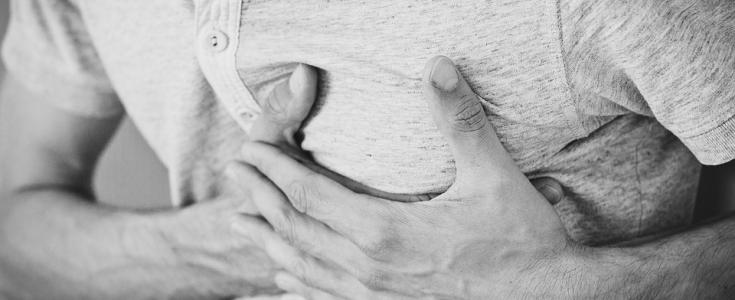Anxiety Can Mimic A Heart Attack
Although people typically think of anxiety as a mental condition, it causes a number of physical symptoms. Severe anxiety, particularly panic attacks, causes many people to wonder whether they are having a heart attack. Chest pain can certainly be a symptom of anxiety, along with other common symptoms such as heart palpitations, a racing heartbeat, shortness of breath, nausea, cold sweats, and lightheadedness.
Unfortunately, these are all also heart attack symptoms--something that is not likely to help you remain calm when you’re trying to determine whether your chest pain is caused by anxiety or something more serious. Chest pain is a very alarming symptom, and many anxiety sufferers mistakenly believe they’re suffering a heart attack. If you’re ever unsure about the cause of chest pain, it’s a good idea to get a medical opinion--it may turn out to be anxiety-related, but it’s better to err on the side of caution. Anxiety is very common, but so is heart disease.
Chest pain due to anxiety is most likely caused by muscle contractions in the chest wall, where the pain tends to be localized and is often a sharp pain that is either fleeting or interrupts a breath. The anxiety causing the chest pain will often exacerbate the condition. If the pain is caused by anxiety, it will often go away if you get the anxiety under control, although a soreness may remain for a time.






